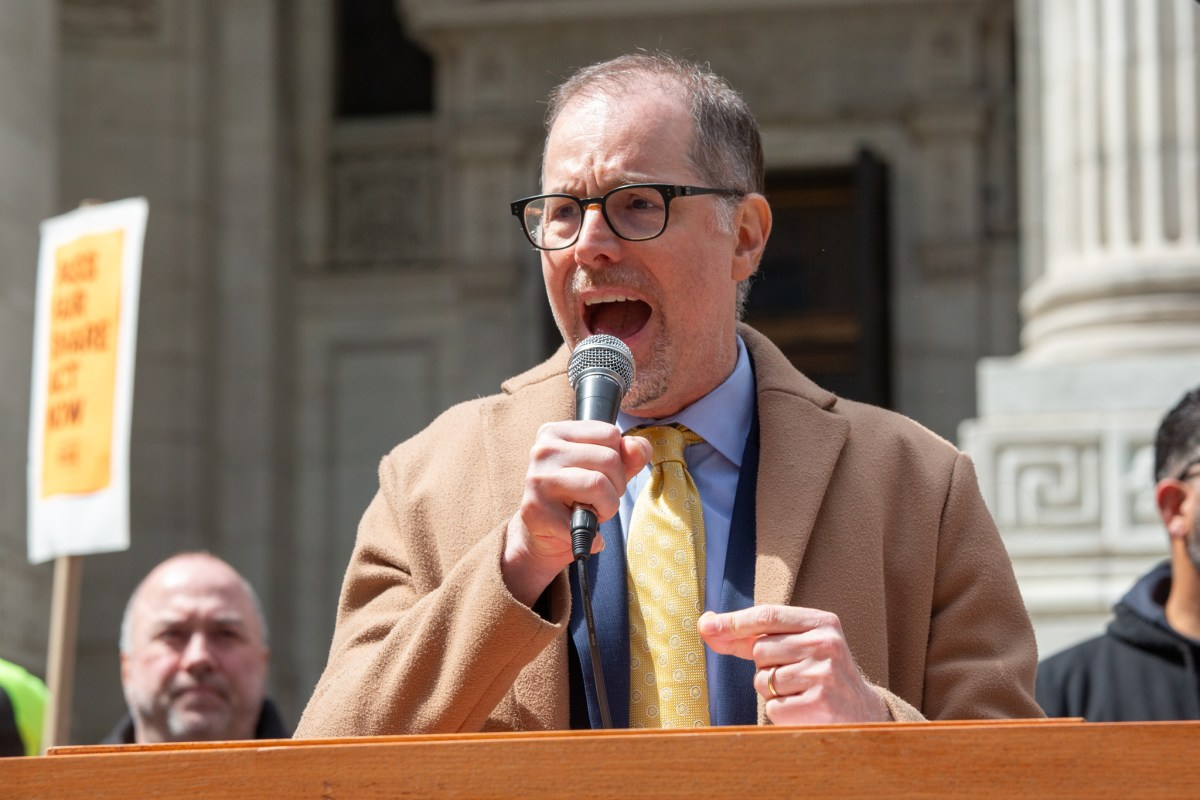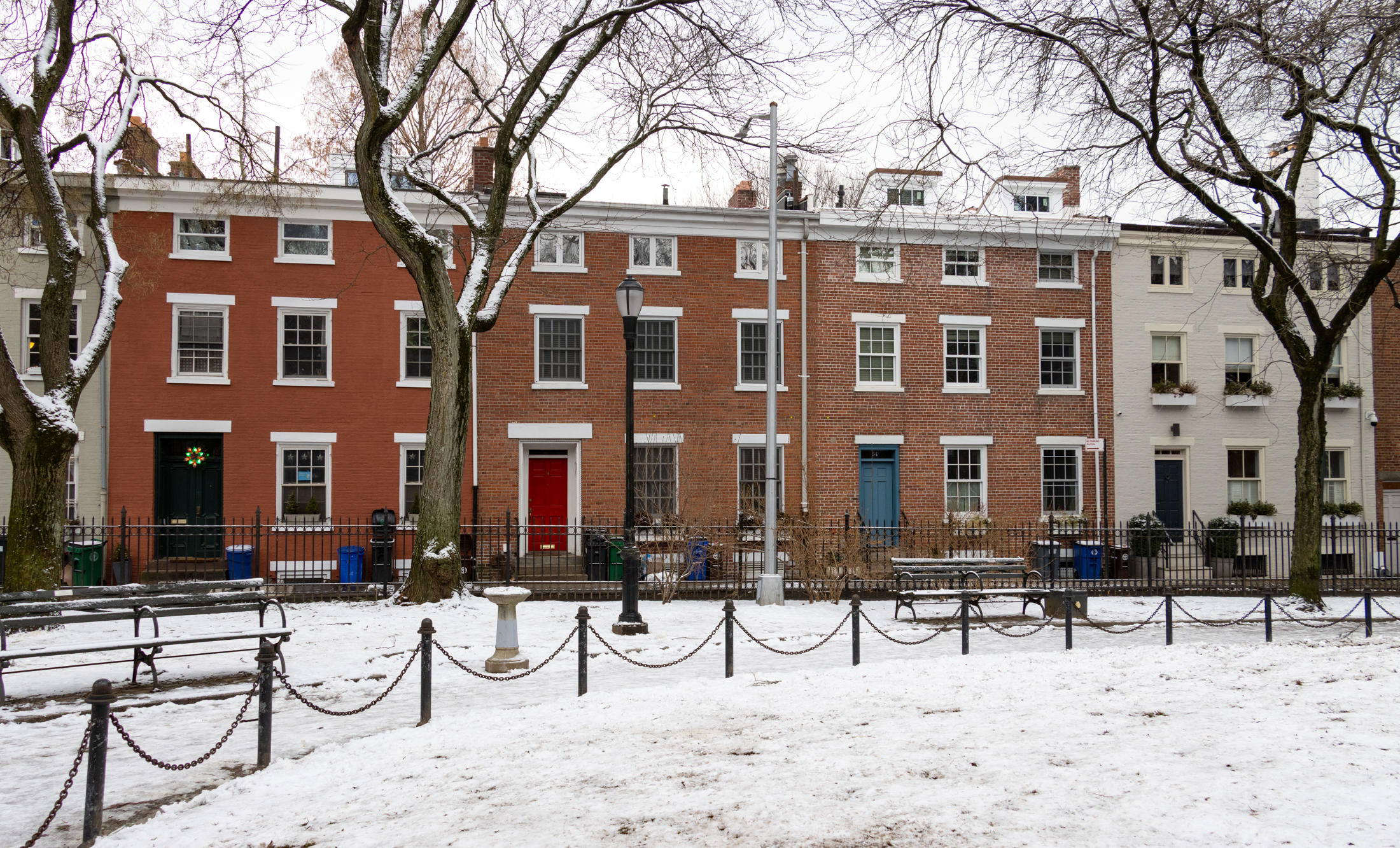Democratic Assembly Passes Pro-Tenant Legislation
In a potentially huge set-back to New York City landlords, the New York State Assembly passed a new package of legislation yesterday that strengthen’s rent regulation across the state and gives more authority to the pro-tenant New York City Council. According to The Times, the new rules would “essentially return to regulation tens of thousands…

 In a potentially huge set-back to New York City landlords, the New York State Assembly passed a new package of legislation yesterday that strengthen’s rent regulation across the state and gives more authority to the pro-tenant New York City Council. According to The Times, the new rules would “essentially return to regulation tens of thousands of units that were converted to market rate in recent years” and reduce the amount a landlord is allowed to increase the rent upon a vacancy from 20 percent to 10 percent. It’s a matter of fairness, said Jonathan L. Bing, an assemblyman who represents the Upper East Side. We’re trying to give people a way to live out their lives in the neighborhoods they’ve been calling home for decades. On the other side of the coin: This is going to be very devastating, said Joseph Strasburg, president of the Rent Stabilization Association, a group that represents landlords and real estate agents in the city. New York City is the last big city in the country that has any strong form of rent regulation. And at a time when we have an economic recession, when rents are actually going down, this will put another nail in the coffin. In our opinion, the government should spend more time and resources making sure landlords adequately maintain their buildings and abide by the legal terms of their leases with tenants and less time trying to fight the laws of supply and demand. After all, rents are already coming down anyway.
In a potentially huge set-back to New York City landlords, the New York State Assembly passed a new package of legislation yesterday that strengthen’s rent regulation across the state and gives more authority to the pro-tenant New York City Council. According to The Times, the new rules would “essentially return to regulation tens of thousands of units that were converted to market rate in recent years” and reduce the amount a landlord is allowed to increase the rent upon a vacancy from 20 percent to 10 percent. It’s a matter of fairness, said Jonathan L. Bing, an assemblyman who represents the Upper East Side. We’re trying to give people a way to live out their lives in the neighborhoods they’ve been calling home for decades. On the other side of the coin: This is going to be very devastating, said Joseph Strasburg, president of the Rent Stabilization Association, a group that represents landlords and real estate agents in the city. New York City is the last big city in the country that has any strong form of rent regulation. And at a time when we have an economic recession, when rents are actually going down, this will put another nail in the coffin. In our opinion, the government should spend more time and resources making sure landlords adequately maintain their buildings and abide by the legal terms of their leases with tenants and less time trying to fight the laws of supply and demand. After all, rents are already coming down anyway.
Assembly Passes Rent-Regulation Revisions [NY Times]
Photo by Bobble





bxgirl, I never said anything about landlords and arson.
Also, I never said I didn’t like tenants, I just said I don’t believe in giving them more rights over a building than the owner.
All I’m saying is that as an owner I should be able to run the building as I see fit. I’ll assess the market for rents, I’ll make repairs, I’ll look at income and expenses, etc. I don’t need or want the government to tell me how to do it nor do I want them to give the power to my tenants.
If a tenant doesn’t like the way I run the building they can move. Just like if a customer doesn’t like a restaurant they stop going, they don’t get to tell the owner to change the menu and they don’t get the government to set the menu prices.
SRS is a great buy right now.
With the collapse of REITS, which will surely happen, it could hit to 200.
christopher- I hope you never open another business because your business model is shortsighted and self-defeating. If you don’t like having tenants- go into another line of work.
And benson- I have to disagree. Redlining was not based on rent control. It was based on racism and the perception of neighborhoods as poor. If you were right, there would have been arson all along Central Park West in those gorgeous old (and many still) rent controlled or stabilized buildings. It would have been CPW is Burning.
And it still doesn’taddress the fact that LL’s intentionally burned their buildings- not caring if they killed tenants or left them homeless. There is a level of responsibility between LL and tenant that goes beyond the everyday operation of a business and that has to be recognized on both sides.
Borough of Manhattan Community College
Academic Transcript
Student: Sheldon Silver
Economics 101 FAIL
Sociology 101 FAIL
Urban Planning 101 FAIL
Politics 101 A+
fsrq- my point about the South Bronx and Harlem is that – no matter RS/RC- you don’t get big rents in poor neighborhoods- as those neighborhoods were deemed “undesirable”, poorer tenants moved in. Lower rents- it happens even in places that don’t have RS/RC and so christopher is wrong to blame that for the arson.
ironballs- the big mistake on both sides is to consider each side the enemy because you immediately start from a adversarial and mutually unbeneficial point of view. Yes, LL’s own but they want and need tenants. It’s like any business- if you don’t want your customer base, and aren’t willing to offer good customer service, don’t go into that business. Too many landlords go into it with the idea that they hatedoing it but they must. So right off the bat, the tenant is the enemy. And tenants come in with the attitude that the LL is going to screw them. I’m not defending either side and if you read my complete post you would have seen where I said I thought the bill was not a good idea.
I really don’t get where people think the laws are all for the tenant. True, many laws were written for our protection. And there were good reasons for them. But any tenant will tell you there is no feeling of power or entitlement- that’s a LL fantasy.
mopar – a socially fair and economically viable model, therefore never to be adopted in NYC
“SouthParker” : “10 years ago I was a recent immigrant…now that I’m a landlord”
that is why:
” I get screwed again. ”
And it is COW, people, not GOAT.
Have to agree with geekyfemme. And NYC is *not* the last big city with strong rent control. San Francisco has rent control. Unfortunately, the way it was implemented in NYC has given rise to all the of the many problems mentioned above.
In San Francisco, the law is very simple. Landlords can raise the rent every year a set amount tied to the cost of living and inflation (it changes, but it’s generous, never less than 4 percent). When someone moves out, landlords can charge whatever they want. It gives the tenants the same control owners enjoy over the cost of housing. Yet it is not so extreme that landlords cannot maintain their buildings and make a profit.
“But giving them permanent right to renew their leases at below market rent as the current rent stabilization laws do, is in essence giving them right of OWNERSHIP which rightfully belongs to their landlord, not to them.” – Ironballs
Well said.
I don’t buy in to the “eliminate rent stabilization and the rental market will crash”. Eliminating the regulations wont make every landlord evict their tenants and jack up the rent, the market wont support that.
The owner owns, the renter rents. If the renter doesn’t like the situation they should move. End of story. Not my responsibility as a landlord to placate them. I should be able to charge what I want and run my building the way I want. The beauty of freedom. If a tenant doesn’t like it tough, move. Where to? Not my problem.